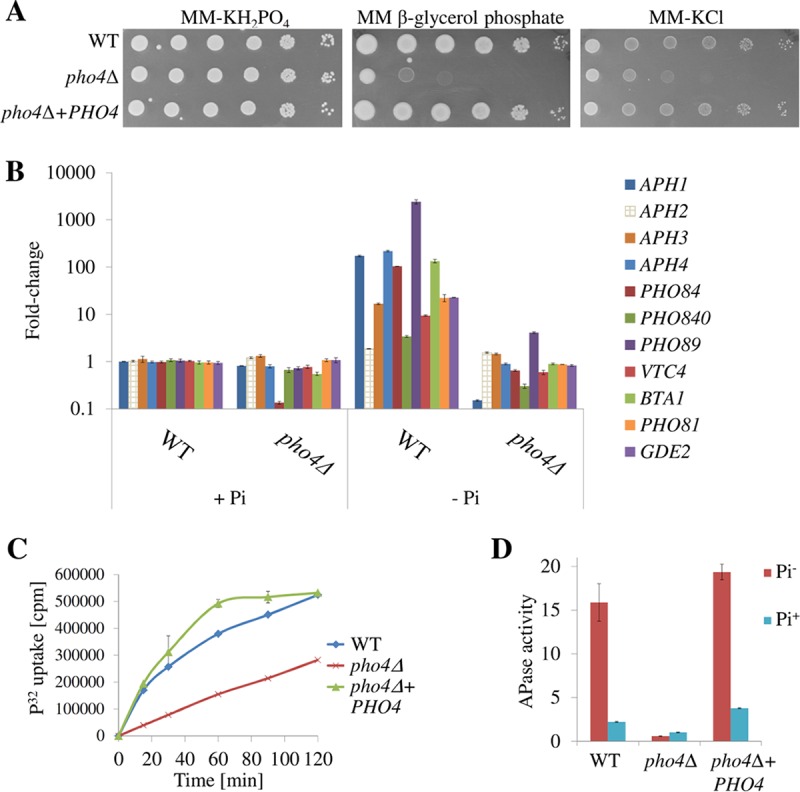FIG 1 .

Pho4 promotes cryptococcal growth in the absence of free phosphate by inducing expression of genes involved in phosphate acquisition to allow optimal phosphate uptake. (A) Spot dilution assay with the indicated strains on minimal medium (MM) supplemented with 29.4 mM KH2PO4 (MM-KH2PO4), 29.4 mM β-glycerol phosphate, or 29.4 mM KCl (MM-KCl). The growth of the pho4Δ mutant was compromised when β-glycerol phosphate was the sole phosphate source and in the absence of free phosphate (MM-KCl). PHO4 reconstitution recovers this phenotype. (B) Expression of genes involved in phosphate acquisition was tested in the WT and pho4Δ strains after 3 h of incubation in MM-KH2PO4 (with orthophosphate [+Pi]) or MM-KCl (−Pi). Expression data were normalized to the expression of the housekeeping gene, ACT1 (CNAG_00483), and plotted as fold change relative to the value for the WT (+Pi). Results represent the mean fold changes plus standard deviations (SDs) (error bars). Results are a representative example of two biological replicates, each performed in technical triplicate. (C) Uptake of radioactive orthophosphate (P32) by phosphate-starved strains in MM. (D) Extracellular acid phosphatase (APase) activity after 4 h of incubation in MM with 5 mM KH2PO4 (Pi+) or in MM (Pi−). In panels C and D, the results represent the means ± SDs (n = 3 biological replicates).
